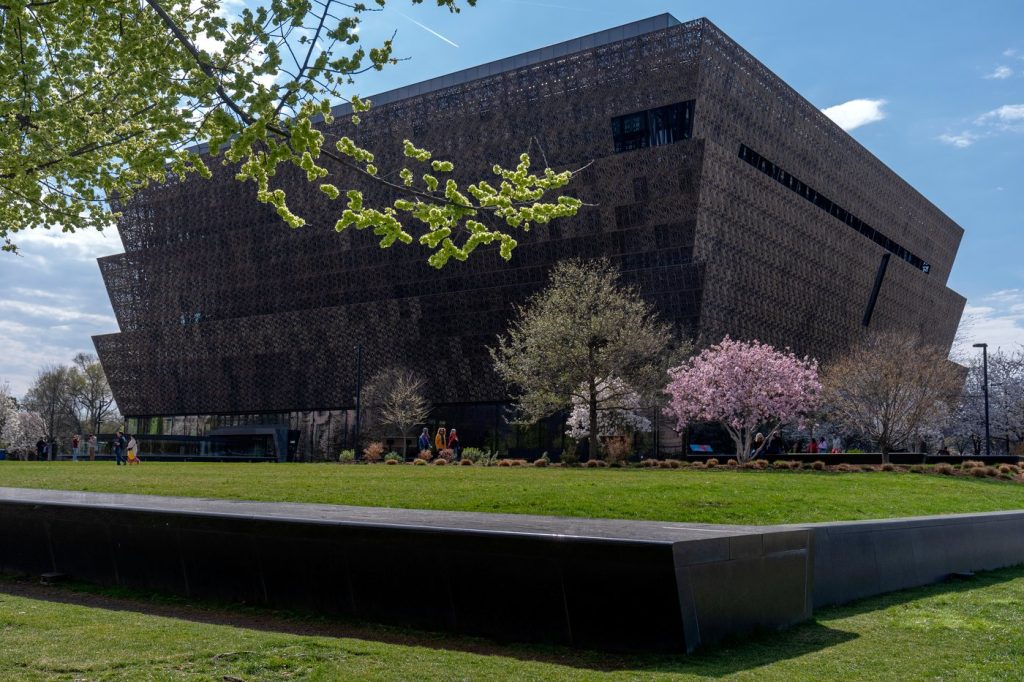ATLANTA (AP) – President Donald Trump's recent executive order, titled "Restoring Truth and Sanity to American History," has sparked significant backlash from civil rights advocates, historians, and Black political leaders. The order claims that the Smithsonian Institution does not accurately reflect American history, emphasizing the phrase, "all men are created equal," as stated by the Founding Fathers. However, critics point out that the same founders enshrined slavery within the U.S. Constitution and classified enslaved individuals as three-fifths of a person for Census purposes.
The executive order, issued on a Thursday, specifically targets the National Museum of African American History and Culture, alleging that the Smithsonian is engaged in a "concerted and widespread effort to rewrite our Nation’s history." The order criticizes what it describes as a "corrosive, divisive, race-centered ideology" that portrays the nation as "inherently racist, sexist, oppressive, or otherwise irredeemably flawed." In response, the order empowers Vice President JD Vance to review all programs and presentations within the Smithsonian and prohibit those that "degrade shared American values" or "divide Americans based on race."
Furthermore, Trump has directed Interior Secretary Doug Burgum to investigate any monuments altered since January 2020 that may perpetuate a distorted view of American history or diminish the significance of certain historical figures. Trump has been a vocal critic of the movement to remove Confederate monuments, which gained momentum following the murder of George Floyd in May 2020.
Critics argue that the executive order represents yet another attempt by the Trump administration to downplay the contributions of Black Americans and ignore the historical barriers they have faced. Historian Clarissa Myrick-Harris from Morehouse College warns that such actions seem to deny the existence of slavery, Jim Crow laws, and the racial violence that has impacted Black communities throughout history. Ibram X. Kendi, a prominent historian, emphasized that Trump's order is a direct attack on Black America and its historical narratives.
Trump has previously praised the Smithsonian’s African American museum, describing it as a national gem during a visit in 2017. He acknowledged the museum's role in honoring the contributions of Black Americans and expressed gratitude for the opportunity to visit after President Barack Obama’s inauguration.
As the 2024 presidential campaign progresses, Trump has intensified his criticism of what he labels as "woke culture," aiming to rally support by focusing on issues related to diversity, equity, and inclusion. His administration has previously taken actions to eliminate diversity initiatives in the federal government and has launched investigations into race-conscious admissions policies in educational institutions.
There are concerns among civil rights advocates regarding the chilling effect this executive order may have on institutions studying Black history. Kendi noted that several museums dedicated to Black history across the country lack substantial government funding and are already struggling. His apprehension lies in the potential for these institutions to be “starved” of resources, leading to a narrative controlled solely by political propaganda.
The order has ignited further debate about the historical representation of marginalized groups in American history and has been criticized for attempting to erase uncomfortable truths that are critical to understanding the nation’s past. As tensions rise, both supporters and critics of Trump's order continue to voice their opinions on the portrayal of history and its implications for the future.










